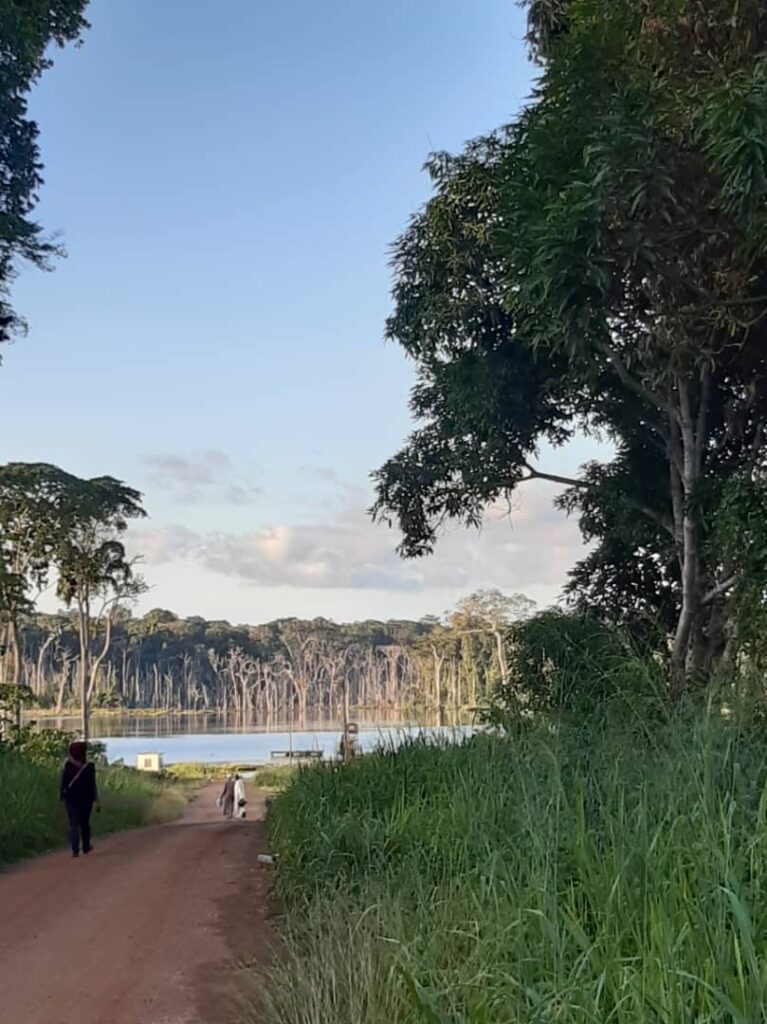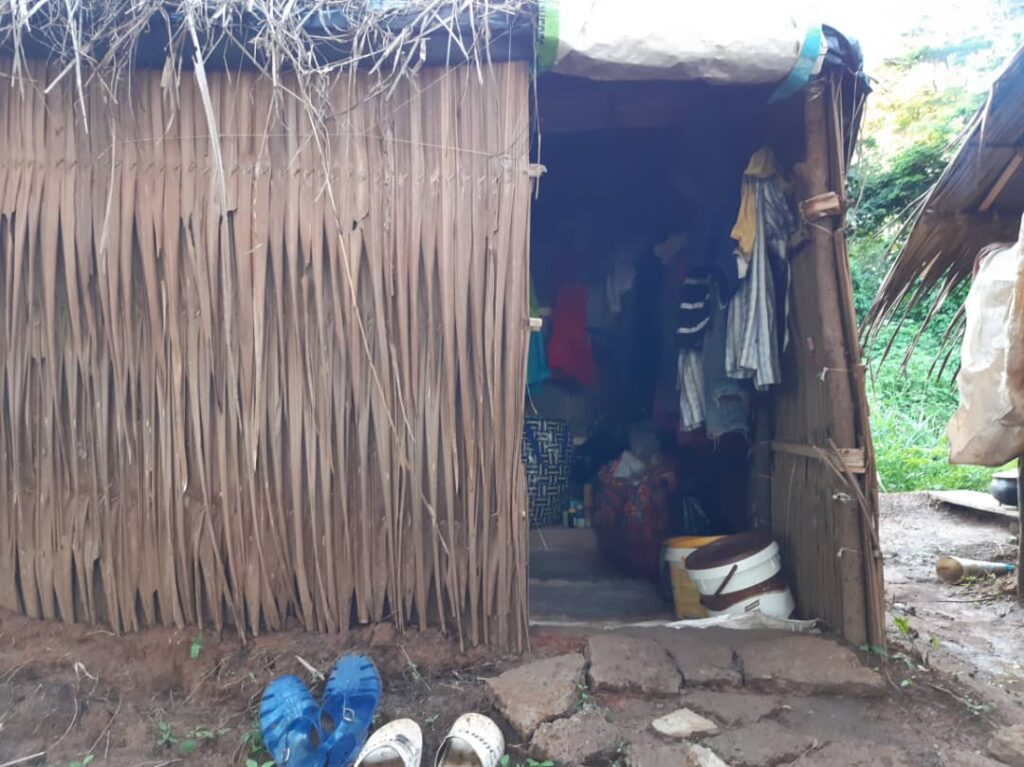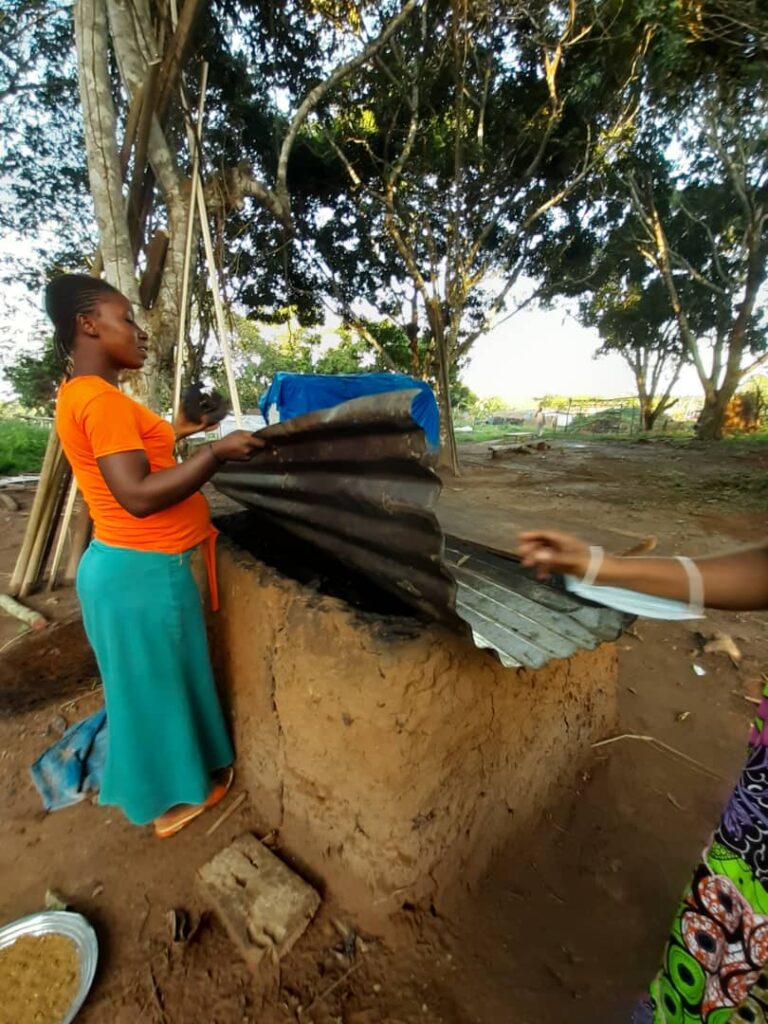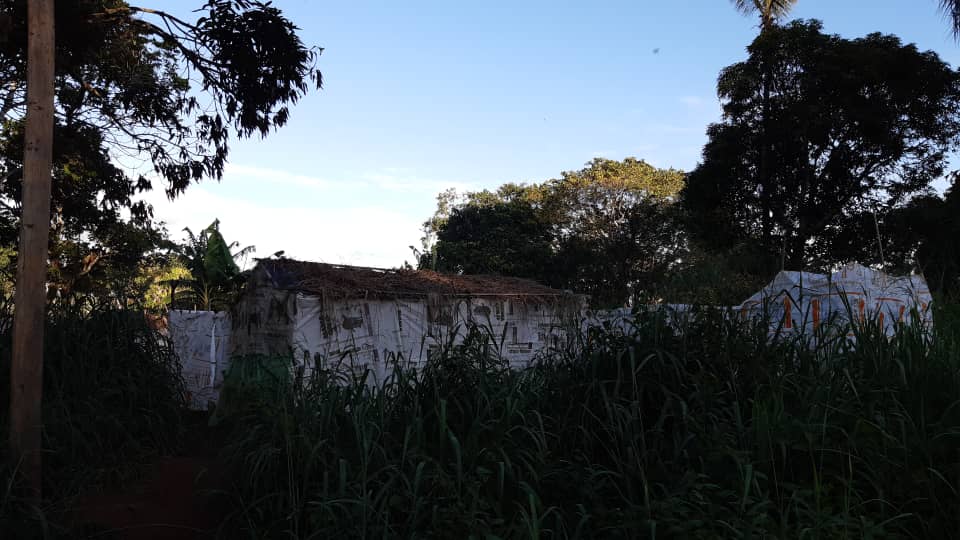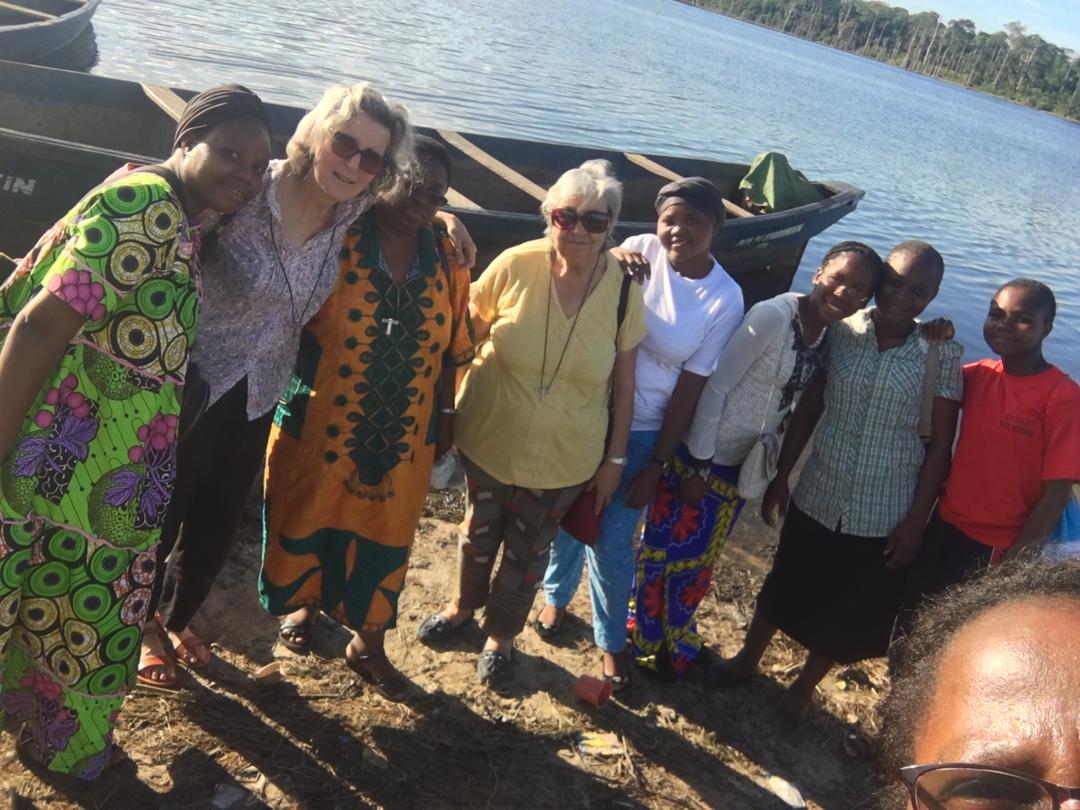
20 May OUR END OF RAMADAN AND FEAST OF THE ASCENSION/CAMEROUN
Today has been a very special day, packed with happenings and with life. At the beginning of the day it was raining cats and dogs and so, as is usual here, the electricity shut down… We went to Mass at the church of the Conceptionist Fathers, where an Italian priest celebrated the liturgy. Sr. Aurelia, whom we had not seen for 35 years, was visiting us with Sr. Euphrasie, our Regional Superior. It was a delightful meeting.
The text books for the next school year arrived at the school and we got covered in mud, carrying them out of the car…
Finally, after a celebration meal we decided to go for a trip. To where the Dja and La Lobe rivers meet. I remember having been there more than 15 years ago, when my parents came to visit me. Nowadays, thy have built a power plant there to produce electricity.
It is a magnificent road in the midst of the jungle, with a spectacular view, and more so after it has rained: the sky and with its clouds is a special colour, and the leaves on the trees seem to sparkle in the sunlight… the different shades of green and some red flowers surprise us and bring us happiness.
Nowadays in Cameroon two national Feast days are celebrated : the Muslim end of Ramadan and the Christian Feast of the Ascension, and so all along the road we saw all the Muslims with their new clothes. While the hymns being sung in the Churches provided background music..
We arrived at the village without problems, at one point we were not sure but a lady in a little house along the road gave us the necessary directions: “Forget about the right hand turn”, and “keep going straight on”.
We travelled towards the power plant and admired the construction build by the Chinese. The market at the entrance to the village was full of men – only men – Muslims who were celebrating. One of them, a very pleasant man asked if they could pass, but it wasn’t possible. We approached the river, where the waters of the Dja and the la Lobe meet, a beautiful spot, with canoes, ducks, birds and the river in the middle of the jungle.
Several groups of men were crossing the river in their canoes. We asked one of hem the name of the village opposite, he was from the north. We congratulated him for the Feast Day and he was very happy, and his face lit up. After a little while, he approached Aurelia, Euphrasie and me to ask if he could take a photo with us. We said yes, and, he delightedly called over his companion who had a cell phone and took a photo of his “mama” – with me and with his “granny” – Aurelia – and with his “big sister” -Euphrasie… So funny. Soon, some of his companions also asked to take photos with us. They worked with the Chinese as guards in the big houses that were in that neighbourhood. We were surprised by their pleasantness and their simplicity.
Just a Little further on, we stopped because we had caught sight of the tents belonging to the displaced people. We stopped to ask about them. Serge, Biche and the pre-postulants approached them to try to find out where this group was from and why they were here in this area. They are displaced persons from the south-east and Bamendas, who come with their families to fish. The smoke the fish they catch. They showed us how they do it. They live in huts made of banana leaves, in tents pitched on the moist ground. Of course, there is no schoool here … they spend only a few months here and then they move on to another area to fish. They were very friendly… the husband, his pregnant wife and their three children. On our way here, we had just passed, the enormous houses of the “bosses or political personalities” of the area (it is where the president lives) and the contrast with the little huts is so much greater. So we were even more surprised by their friendliness and simplicity… the natural beauty and the beauty of the human spirit, when money, honour and power do not disfigure it.
We are discovering, more and more, in different places in Cameroon, groups of displaced persons from different conflict zones: from the west, the north or the east. All of us are experiencing the desire to be able to do something for them: they have no school, no doctors, no electricity, no water, no home. … On the way home, we gave thanks again for a lovely day, for creation and the beauty of this country, for a shared feast day that helps us to live ecumenism, for everything we have, and all we can offer. And we asked ourselves what more can we do for them: We will have to talk with the Bishop, ask in the Delegation for Education…perhaps go in the summer to give a course or two, at least to teach the bigger children how to read…
And so we went home, with a grateful heart , but concerned at the same time, there is so much to do! There is always something that we can do. And God, who has left us his Spirit to urge us on to do “more” and a who has placed these faces before us, will help us to discover the “what?”
Rosario García, aci

